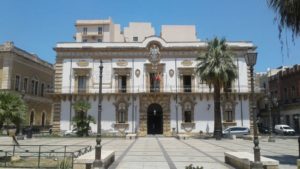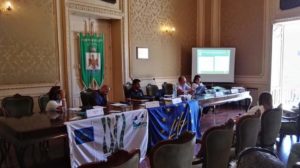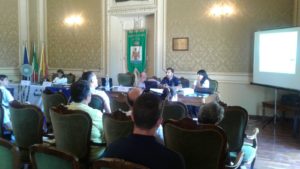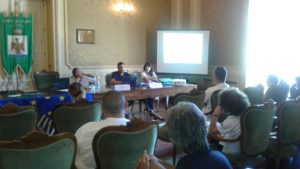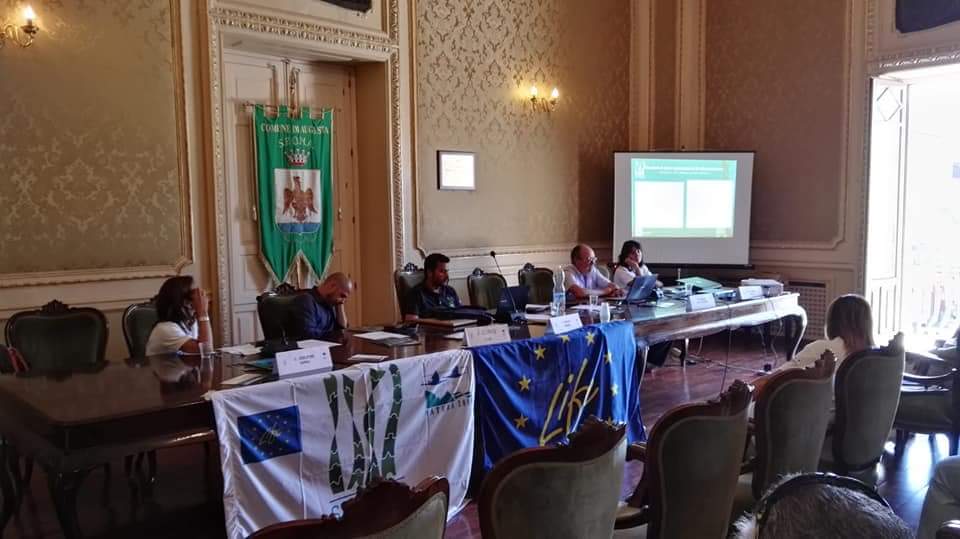
- ACTION B.1,NEWS,SEPOSSO
- No comments
As part of the events planned in the Augusta Bay between 9th and 13th July, for the meetings between stakeholders involved in the management of Posidonia oceanica transplants in the four study sites (Action B.1), Life SEPOSSO organized a round table held in Augusta (SR), on 12th July 2018, in the Municipal Hall “Rocco Chinnici”.
The round table aimed at discussing the main aspects concerning the management of Posidonia oceanica transplants, with a specific focus on those transplants carried out as a measure of environmental recovery in areas such as the Augusta Bay.
Posidonia transplantation in analysis was carried out at Priolo Gargallo in the locality “Seno di Priolo” in June and November 2014, as a measure to restore the pre-existing prairie, as part of the Research and Training Project “Advanced eco-sustainable technologies aimed at reclamation and restoration of degraded coastal marine areas (TETIDE) “. The impact on the prairie of P. oceanica in front of the site of the Site of National Importance (SIN) of Priolo (SR), is linked to the damage caused by decades of industrial discharges deriving from the Petroloquical Pole of Priolo-Melilli-Augusta.
The reforestation intervention was conducted by the Department of Earth and Sea Sciences (DiSTeM) of the University of Palermo and involved a total area of 2500 square meters.
In order to verify how transplanting is carried out to date, Life SEPOSSO has organized a series of monitoring scuba dives to collect new data and observations. These observations, together with the techniques used to carry out the transplantation, were discussed during the round table session.
Several categories of stakeholders attended the meeting, showing awareness of the importance of the grasslands and also of the damage caused by human activities. The discussion proved to be useful to transmit new awaress in the attendants of being the main actors of the Governance process. We recorded among the participants a great sensitivity about the themes of responsible and sustainable behaviors, particularly among the users of the sea. The discussion allowed us to better understand the possibilities of using transplantation techniques such as the recovery of degraded or lost prairies and not only as a compensatory measure within the EIA provisions of marine-coastal works, in order to achieve an optimal governance of the transplants.

